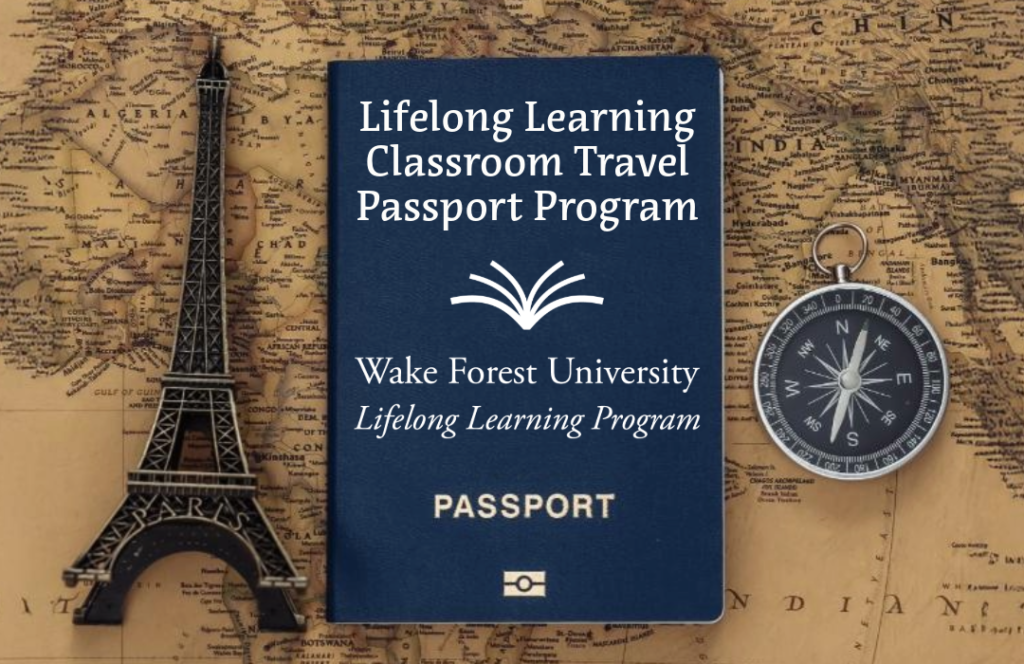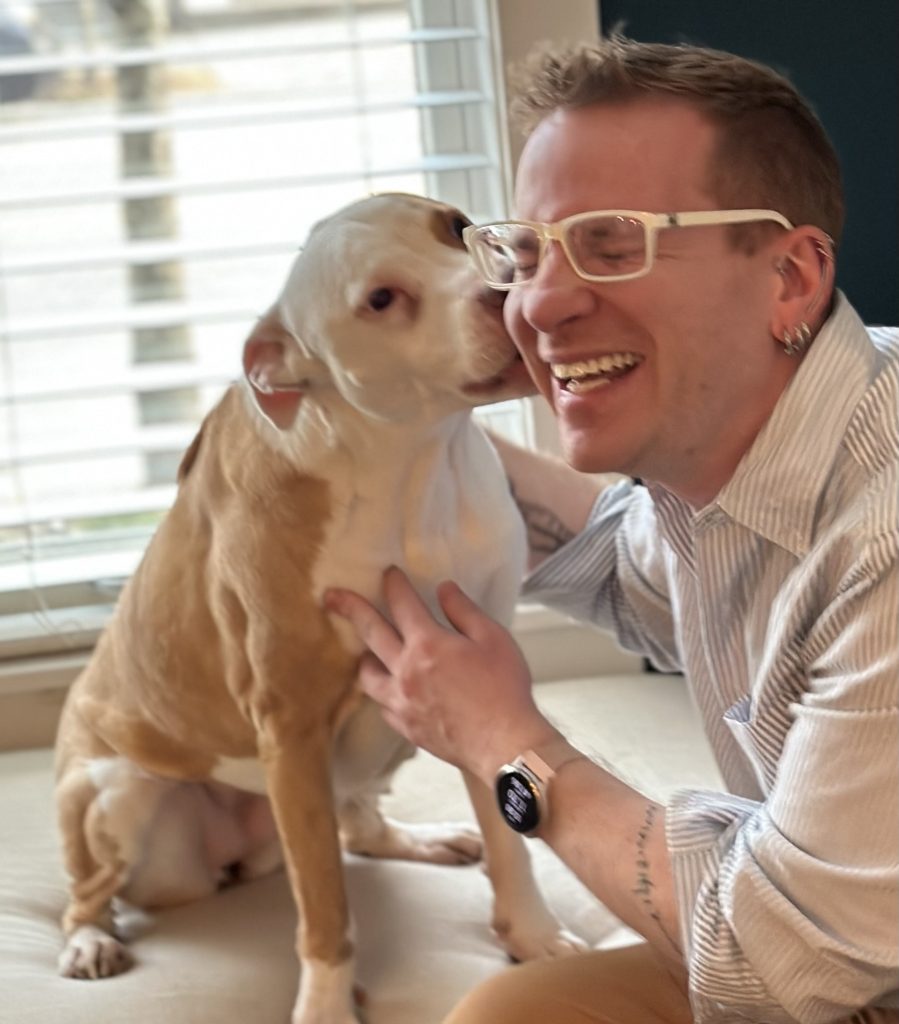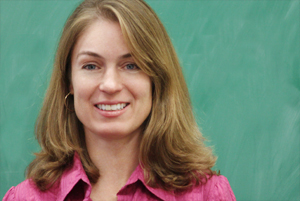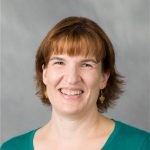Current Term & Upcoming Terms- Summer & Fall 2025
Lifelong Learning is your ticket to an educational adventure! For every Lifelong Learning course that focuses on a specific country, as designated by the passport image with the course description, you will receive a “stamp” in your passport. Collect five stamps and receive a voucher for a complimentary passport program designated Lifelong Learning course.
Classroom Travel Program


Summer 2025 Courses-registrations still available
Hercules: A Window into the Greek and Roman Worlds–
Course in Session.
Tuesdays, noon-2pm
May 27 – July 1, 2025
Presented by Professor T.H.M. Gellar-Goad

Join Professor Gellar-Goad in an exploration of Graeco-Roman literature, art, thought, and culture, through the myth-cycle of the hero Herakles/Hercules. We will trace the hero’s development and constant transformations from the time of Homer through the end of the Roman Empire and into the modern world. Along the way, we will encounter some of the greatest works of Greek and Roman society, including Greek tragedy, Roman poetry, and religious and philosophical writings of antiquity.
No reading or homework is required for any Lifelong Learning courses. The instructor will be providing some suggested readings (PDFs) to the course participants at a later date.
T. H. M. Gellar-Goad, Professor of Classics and Denton Fellow at Wake Forest University. Ph.D. in Classics from MA, PhD, UNC-Chapel Hill. Professor Gellar-Goad previously taught this Lifelong Learning course Summer 2018. He has presented at an international Herakles/Hercules conference and published two articles on Hercules.
Democracy’s Rises and Falls
Tuesdays, 10am-noon
July 8 – August 12, 2025
Presented by Michaelle Browers

For nearly a century, democracy has largely been taken for granted as a global political ideal: most modern political regimes claim to be democracies and protest activity aimed at political change commonly lists “democracy” on their banner of demands. Some question the merits of, or express a loss of faith in, democracy after particular electoral outcomes, just as others, equally dissatisfied, might worry those same results threaten democracy in some way, thus demonstrating a continued faith in this form of governance, even as its future status is questioned. We will engage our current very real and present concern about democracy from a broader, historical and theoretically informed perspective, one which reveals that many of the current concerns about democracy are not new. We will begin by looking at some of the latest political science research, which is ringing the alarm bells about the state of democracy, both globally and in the United States before taking both a broader and deeper historical dive into both global and local contexts. While many past historical accounts of “rule by the people” tended to focus on ancient Greece and pre-Renaissance Europe, we will explore more recent work that draws from global evidence to show that democratic practices were present earlier and further afield, from the Americas before European conquest, to ancient Mesopotamia, to precolonial Africa, before taking a deeper dive into the US case. This historical research can broaden our understanding of how and why democracies can flourish as well as how and why democracies might decline. We then approach the topic from the other way around: what is it that makes populism and authoritarianism so alluring–and in what ways do these phenomena pose particular threats to democracies? Giving our topic one more twist we will ask that question of why and how democracy has managed to thrive in some hard cases–places where ethnic cleavages, poverty, external threats, and other challenges would seem to render democracy unlikely–and what we might learn from these cases. Our final class will return to the political science research with which we launched our study, hopefully with new perspectives and a broader sense of what is at stake and what might be done. Lifelong learners who attended Dr. Browers’ earlier course on “Is Democracy Dying?” should find enough that is new in the content and approach to consider revisiting the topic.
Book List: While no reading is ever required for a Lifelong Learning class, your instructor has recommended books to enhance your class experience. Some books can be purchased locally at https://bookmarksnc.org/. Bookmarks offers a discount on all books to Lifelong Learners when shopping in person.
The Decline and Rise of Democracy: A Global History from Antiquity to Today, by David Stasavage
How Democracies Die, by Steven Levitsky and Daniel Ziblatt
Twilight of Democracy: The Seductive Lure of Authoritarianism, by Anne Applebaum
Democracy in Hard Places, edited by Scott Mainwaring and Tarek Masoud
Dr. Michaelle Browers is Professor of Politics and International Affairs at Wake Forest University. She is a political theorist who specializes in democratic theory, political ideologies, and Arab-Islamic political thought. She is author of Political Ideology in the Arab World: Accommodation and Transformation and Democracy and Civil Society in Arab Political Thought: Transcultural Possibilities.
Where did you hear that?: Understanding & Surviving
in our Information Ecosystem
Wednesdays and Fridays, 10am-noon
July 9 – July 25, 2025
Presented by Rosalind Tedford

Today’s information landscape is a far cry from that of just 20 years ago. The changes we have seen have had far reaching effects on people, places, and politics. Now, perhaps more than ever, it is critical that we understand today’s information landscape so we can navigate it successfully and avoid a wide variety of pitfalls including (but certainly not limited to) mis- and disinformation, fake news, conspiracy theories, dangerous medical advice, AI fabricated content, and adverse mental health effects. This course will look at how we got where we are, how our current information ecosystem operates, and how we can best ensure that we surround ourselves with good information while resisting the lure of the worst parts of the disordered (but oh-so-tempting) information landscape.
Rosalind has her BA (Psychology/English) and her MA (English) from Wake Forest University and her MLIS from UNC-Greensboro. She has been a full-time staff member at the Z. Smith Reynolds Library since 1994 and currently serves as the Director for Research, Instruction, and Outreach Services. In addition to managing the research and instruction programs at Wake Forest she teaches for-credit information literacy courses and is the liaison to the Politics and International Affairs and English departments.
Spring 2025 Term-completed
Behind the Berlin Wall-Course completed.
Presented by Molly Knight
Tuesdays, 2 – 4pm
January 21 – February 25
*Updated course to mark the 35th anniversary of its fall.
To mark the 35th anniversary of the fall of the Berlin Wall, this course will examine the history and culture of East Germany from 1945 until its official reunification with the West in 1990. We will discuss East German politics, entertainment, and everyday life, from the surveillance methods of the secret police to the peaceful revolution that brought down the Wall. We will also discuss the ways in which East Germany has influenced contemporary German culture. How is this country which no longer exists remembered in the present day — and how do its former residents make sense of their identity in a reunified Germany?
“LLL Passport” Eligible.

Molly Knight received her BA in English from Clemson University and her Ph.D. in German Studies from Duke University. She has published articles on the work of Swiss author Christian Kracht, and masculinity and violence in contemporary German film. Her specialties include gender studies, contemporary literature, film, and East German history and culture. Professor Knight previously taught Fairy Tales from the Grimms to Disney and Beyond in 2021 and Behind the Berlin Wall in 2019 for the Lifelong Learning Program.
Negotiating “Paradise”: Bali Beyond the Tourist Image-Course completed.
Presented by Elizabeth Clendenning
Wednesdays, 1:30 – 3:30pm
January 22 – February 26
Stunning beaches, mystical mountains, and remote jungle temples: images of Bali have long been an invitation to the exotic. Yet, the story of Bali beyond the images is even more complicated and fascinating. This course considers the inseparable intersections between Balinese Hindu religion, the performing arts, visual art, history and politics, ecological sustainability, alongside the construction of the island’s dominant economic force, the tourist industry. We examine how different economic and cultural stakeholders have crafted and portrayed “Bali” the brand, and how this image-building process has alternatively helped threaten, preserve, and created opportunities for innovation. Class lectures will be enhanced by live demonstrations of Balinese music and dance.
“LLL Passport” Eligible.

Book Recommendation: No homework or reading is ever required for any Lifelong Learning class. However, the instructor may recommend books or reading to enhance your class experience. Some books may be purchased locally at Bookmarks https://www.bookmarksnc.org/lifelong-learning . Contact our office at lifeloenglearning@wfu.edu for the discount code.
Dibia, I. Wayan and Rucina Ballinger. Balinese Dance, Drama & Music: A Beginner’s Guide to the Performing Arts of Bali. (Tuttle Publishing, 2023)
Eiseman, Fred B. Bali, Sekala and Niskala. (Tuttle Publishing, 2011)
Vickers, Adrian. Bali: A Paradise Created. (Tuttle Publishing, 2012)
Elizabeth A. Clendinning is Associate Professor of Music at Wake Forest University. She directs the university’s Balinese gamelan ensemble, Gamelan Giri Murti, which is open to both students and community members. Her research focuses on Balinese performing arts, material culture, transcultural pedagogy, and cultural and environmental sustainability. She is author of American Gamelan and the Ethnomusicological Imagination (University of Illinois Press, 2020) and co-author (with Henry Spiller) of Focus: Gamelan Music of Indonesia, 3rd edition (Routledge, 2022).
Greek Mythology– Course completed.
Presented by Michael Sloan
Thursdays, 9:45 – 11:45am
February 6 (skip Feb 20) – March 20
This course will cover foundational myths (stories) that comprise much of what we call “Greek Mythology”. In these myths, we will look at the major characters, mortal and immortal, plot-lines, and themes of these stories. These myths span the time from Homer (800 BC) to the tragedians (400 BC).
- The birth of the gods (Hesiod and Hymns to gods)
- Trojan War
- Odyssey
- Aeschylus
- Sophocles
- Euripides
Michael C. Sloan, Phd, Professor and Department Chair, Classics
Professor Sloan currently holds the F.M. Kirby Family Faculty Fellowship at Wake Forest University. He graduated from Baylor University with a double major in Classics and Economics. He then received a Masters in Classical Literature and another Masters in Theology before receiving his PhD in Classics at St Andrews University in Scotland. He has published widely in his field, including articles on authors such as Aristotle, Augustine, Cicero, Homer, Horace, Erasmus, Euripides, Orosius and others. His first two books were on Sedulius Scottus, a poet and scholar in the age of Charlemagne. He is currently editing a book, which is a survey of Greek and Latin literature, for the ALNTS series. Wake Forest has awarded Dr. Sloan the Kenyon Family Faculty Fellowship for his excellence in teaching and scholarship, and he has also won the “Reid-Doyle Excellence in Teaching Award”, as well as the Teaching and Learning Collaborative “Innovative Teaching Award”. Dr. Sloan is an active advocate for the Humanities and Liberal Arts, publishing opinion pieces in both local and international news journals. He has been interviewed and quoted in the New York Times, Wall Street Journal, and other international media outlets for his expertise in classical literature and higher education.
Reexamining the First World War– Course completed.
Presented by Chuck Thomas
Wednesdays, 2 – 4pm
March 5 (skip March 12) – April 16
* Updated course
This course will examine the broader implications of the First World War, a conflict that has been called the defining event of the twentieth century. Its combat and political realities—stalemated trench warfare and a botched peace leading to an even greater catastrophe twenty years later—are reasonably familiar to adult learners. Its wider impact, however, warrants further study. Centuries-old dynasties collapsed in Central and Eastern Europe. France and Britain managed to escape overt political revolution, but nevertheless underwent fundamental changes in terms of gender relationships, labor/business relations, and the position of colonies and dominions within their respective empires. Intellectuals, artists, and common folk alike came to question basic prewar assumptions concerning progress and patriotism. Not all the changes wrought by the war were immediately visible but in time the collective effects of the conflict between 1914 and 1918 came to be seen by many historians as the watershed between the “long nineteenth century” and the modern world.
Note from Professor Thomas:
In 2015 and 2018 I taught LLL courses on World War I. What is being offered in the current course will include material that we covered earlier, but each of the six sessions will also include a section specifically devoted to “What have I/we learned recently?” This tweaking, which would literally be a reexamining of World War I for you and me, might or might not warrant enrolling in the new course, but please accept my thanks for past experiences in either case.
Chuck Thomas is a professor of history with (just) over forty years of teaching experience at Georgia Southern University, at the United States Naval War College, and, most recently, at Wake Forest. He combines a general interest in modern American and European military history with a specialization in Germany’s and Austria’s roles in the two World Wars. He has taught a wide variety of students, ranging from undergraduates through military and naval officers, to enrollees in Wake Forest’ Lifelong Learning program. A native of Georgia (the state, not the nation), he speaks fluent eighteenth-century military German with a Southern accent and has found his second home in Austria.
Nepal’s Place in the World: A Holistic View-Course completed
Presented by Steve Folmar
Mondays, 1 – 3pm
March 31 – May 5
Nepal is often romanticized as the “roof of the world” where mountain climbers summit the tallest peaks in the world, including Sagarmatha (aka Everest), where the Buddha was born, and where the vast majority of people lead a simple, Hindu, agrarian life. But it is far more real and complex. When taken as a whole, it is ever more fascinating the deeper one goes into its cultures. Join me as we explore Nepal in six sessions, covering its geography and history, its emphasis on family and friends, how society is structured by caste, gender and other principles, the livelihoods people pursue and how work is organized, its pluralistic health and medical systems and its diverse religious beliefs and practices. Learn about life of the Nepalese up close, including the sacred and the mundane, the traditional and the modern, and the joys and challenges.
“LLL Passport” Eligible.

Book Recommendation:
Like other Lifelong Learning classes, there are no required readings for this course. Because of the breadth of the course, there is no single book that addresses all the topics covered. However, there are a number of good resources that can supplement what you get from the lectures. Some can be found here. I will recommend others as we progress through the course
Some books may be purchased locally at Bookmarks https://www.bookmarksnc.org/lifelong-learning . Contact our office at lifeloenglearning@wfu.edu for the discount code.
Steve Folmar is Associate Professor of Anthropology at Wake Forest University, where he teaches courses on the People and Cultures of South Asia, Medical Anthropology and Myth, Ritual and Symbolism. His research on Nepal began in 1979 as a doctoral student at Case Western Reserve University and extends to this day. He has led a dozen trips to Nepal to educate Wake Forest and other students about the realities of culture in Nepal. He has published 18 articles and book chapters on numerous aspects of Nepali culture.
Undying Orpheus: Legends and Origins – Course completed
Presented by Andrew Ettin
Wednesdays, (4-6pm first class only), remaining classes 2 – 4pm
April 23 – May 28
The legends of Orpheus have excited the imagination of creative artists and philosophers from the Greeks and Romans to our time. Orpheus the musician enchanting woodland creatures with his voice and lyre, Orpheus the devoted lover descending to the Underworld to resurrect his beloved bride Eurydice, Orpheus the visionary inspiration for the mystical Orphic Hymns, Orpheus the victim of the Maenads of Dionysius: each of these has been the subject of great and compelling works of art. We will trace the origins and main threads of the Orpheus myth through the centuries in literary texts, stage works, and films.
Andrew Vogel Ettin, Ph.D. is Professor Emeritus of English at Wake Forest University; Visiting Assistant Professor of Religion and Philosophy at High Point University; formerly Part-Time Professor in the Department for the Study of Religions at WFU and assistant professor of English at Cornell University. He is also the rabbi of Temple Israel in Salisbury, N.C.
Fall 2024 Term- Completed
Rise and Fall of Ancient Rome *class complete
Presented by Michael Sloan
This course will cover the rise and fall of Rome, from settlement (ca 1000 BC) to collapse (ca 410 AD). Broken into six lectures, we will survey the major people and events that shaped the various cultural and political changes over roughly 1400 years of Rome’s participation in the ancient Mediterranean world. While there are a number of fine works of historical synthesis available to expert and lay readers (Gibbons’ famous Rise and Fall, R. Syme’s Roman Revolution,or the shorter and recent survey by Mary Beard: SPQR), Primary sources (literature, historians, and other documentary evidence from that period itself along with material/archaeological findings) will be used to guide the survey and follow a path of events driven by a unique thread of characters.
***
Deacon Stories: The History of Wake Forest University **class complete
Presented by Tanya Zanish-Belcher
& Rebecca Petersen May
Wake Forest University was founded in the town of Wake Forest in 1834, by the Baptist State Convention. Join us as we explore the university’s rich history, beginning on the Original Campus as part of the plantation economy, to its move to Winston-Salem in the 1950s. Relying on the rich collections of Special Collections & Archives at Z. Smith Reynolds Library, this course will focus on major themes in WFU history, as well as the people and personalities who have made it such a unique place. This course will be co-taught by Rebecca Petersen May (Public Services Archivist) and Tanya Zanish-Belcher (Director, Special Collections & Archives)/ZSR Library
***
Renaissance Venice between East and West *class completed
Presented by Monique O’Connell
The city Venice is famous as a meeting point for multiple cultures: European, Byzantine, Arab, and Ottoman. This course explores Venice’s relationships with its neighbors to the East and to the West in the Renaissance era. We will trace Venice’s involvement in commerce and crusade, following the city’s fortunes as it builds its own Mediterranean empire and defends it against new challengers. We will learn about the spies, renegades, engineers, missionaries, mercenaries and merchants that crisscrossed Venetian borders and discover how these multiple influences contributed to the construction of Venice’s unique urban and political form. The last session of the class (Nov. 13) will be an optional field trip to the North Carolina Museum of Art to view the visiting exhibition “Venice and the Ottoman Empire.” Participants will need to arrange their own transportation for the field trip; carpooling is encouraged. There may be an admission charge to the exhibition. This class is designed as an introduction for those who are new to Venetian history and will add to the knowledge of those who have already taken other Lifelong Learning courses about Venice.
***
The 2024 U.S. Elections– *class complete
Presented by John Dinan
This class analyzes U.S. elections, focusing especially on the 2024 elections, with the intent of analyzing processes, patterns, and outcomes for presidential, congressional, and state elections. We will focus in part on the 2024 presidential election and analyze the electoral college system and various aspects of presidential campaigns. We will also discuss elections for Congress and for governor, state legislatures, and other state offices. Among other things, we will discuss the redistricting processes used to draw congressional and state legislative districts, as well as the mechanisms for voting, including voting by mail, early voting, and voter ID requirements. We will also discuss why certain candidates are successful, addressing the role of money, voter turnout, and campaigning.
***
Conspiracy Theories in American Political Discourse: 2.0-*class complete.
Presented by Jarrod Atchison
Throughout the history of American political discourse, rhetors have used conspiracy theories to achieve political gains. In Part One of this class, we investigated how conspiracy theories argue, circulate, and persuade. In Part Two, we will turn our attention to strategies to try to address conspiracy discourse. Throughout our time together, you will be exposed to a variety of conspiracy theories that have impacted the political and personal lives of Americans. Our goal is that by the end of our time together, you see the important role that conspiracy theories have played in American history and feel comfortable identifying, researching, and arguing against conspiracy discourse.
***
Resignations and Resistance: Two Classic Italian Novels
in Translation– *class in session
Presented by Tom Phillips
Written in near simultaneity, published a mere twenty-two years apart, Giuseppe Lampedusa’s The Leopard and Ignazio Silone’s Bread and Wine could not be more distinct. Yet both are quintessential narratives of the Italian people. Through the character of Prince Fabrizio, for whom the dusty winds of change threaten his ancestral way of life, Lampedusa crafts an elegy of Sicilian nobility amid the Risorgimento of the early 1860s. Silone’s protagonist, the would-be anarchist Pietro Spina (“Peter of the thorns”), agitates to undermine fascism in 1930s Rome, only to face exile to the Abruzzi (wedged into the lives of the rural poor) disguised as a priest. Both novels are counted among the very best that Italy has produced. Both novels are quietly dramatic and laced with humor. Both novels explore the competing strains of resignation and resistance to profound change in the world.
We will examine these works of literary art in the context of Italian political and social history, including a look at the novel as genre. Class members will also screen Visconti ‘s luminous film adaptation of The Leopard. We will read these medium length novels in their entirety (both are compelling, and fairly quick reads).
Fee Schedule
Lifelong Learning class registration fees effective Fall 2024 Term
Our discounted fees to not only include WFU Retirees, Faculty, Staff and Alumni but also to include Multi-Registration and Guest fees. If you have any questions, feel free to contact our office at lifelonglearning@wfu.edu or call 336-758-5232.
General Attendee Fee- $180 per class. For those who are taking only one class per term and not eligible for the WFU discounted fee.
WFU Retiree, Staff, Faculty and Alumni Fee -$160 per class.
Multi-registration/Guest Fee- $160 per class. For those taking more than one class per term or registering with a guest.
